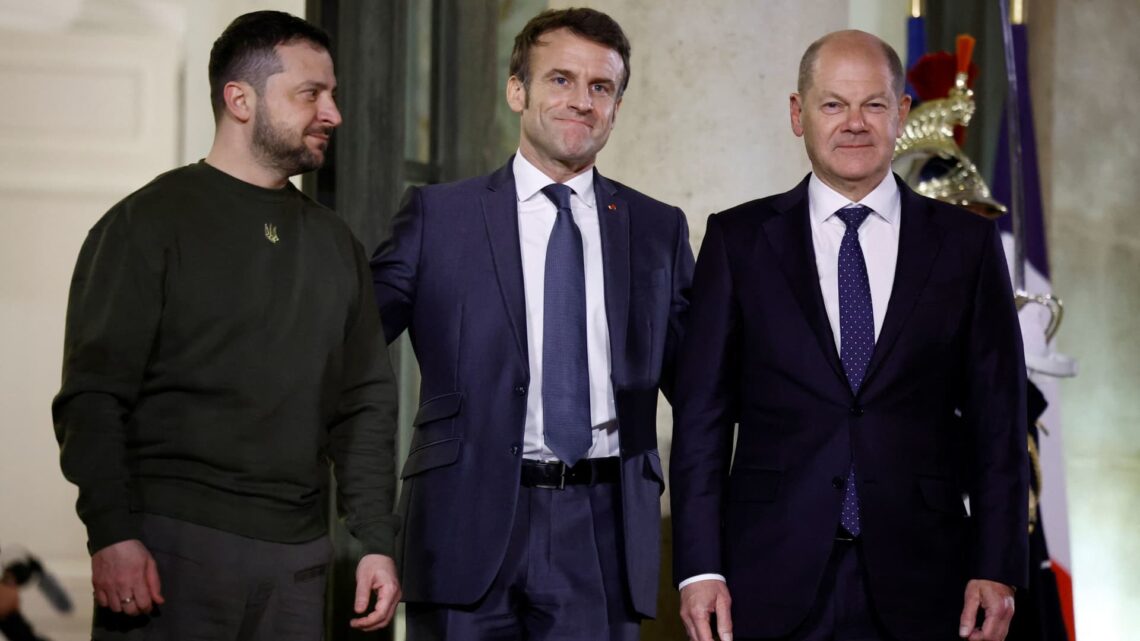French President Emmanuel Macron welcomes Ukraine’s President Volodymyr Zelenskyy and German Chancellor Olaf Scholz for a meeting at the Elysee Palace in Paris, France, February 8, 2023.
Sarah Meyssonnier | Reuters
Munich, GERMANY — Should we borrow from global markets as one combined entity and raise new debt together?
That’s the question hanging on the shoulders of EU officials as they promise to spend more on defense amid Russia’s onslaught in Ukraine.
This debate is not new — and it is historically complex.
For many years, EU nations that were traditionally more conservative over how they spend their money did not want to tap capital markets together with the rest of the bloc. They feared that ultimately their fiscal prudence would be jeopardized by other nations with looser ideas of how to spend cash.
However, in 2020, the 27 members of the European Union decided that the best way to deal with the financial and extraordinary impact of the Covid-19 pandemic was to jointly raise debt.
Now almost four years down the line, some EU officials are saying that what they did during the pandemic is a good blueprint to fund their new defense plans.
But others disagree.
“This is not the magic solution, but it could it could help actually to speed up and to expand our industrial capacity. And that is really what’s at stake today,” Alexander de Croo, Prime Minister of Belgium, told CNBC Friday on the sidelines of the Munich Security Conference, about what raising new debt could mean for Europe’s defense plans.
Estonian Prime Minister Kaja Kallas said in an interview with Bloomberg that joint bonds would be a good way to boost the bloc’s defense capacities.
But Germany’s finance minister, Christian Lindner, was very clear during a panel discussion at the Munich Security Conference this weekend: “In Brussels, it is kind [of] a spot to look for problems [and] to present always the same solution, mutualized debt.”
Instead, Lindner suggested that the EU should develop a single market…
Read the full article here








